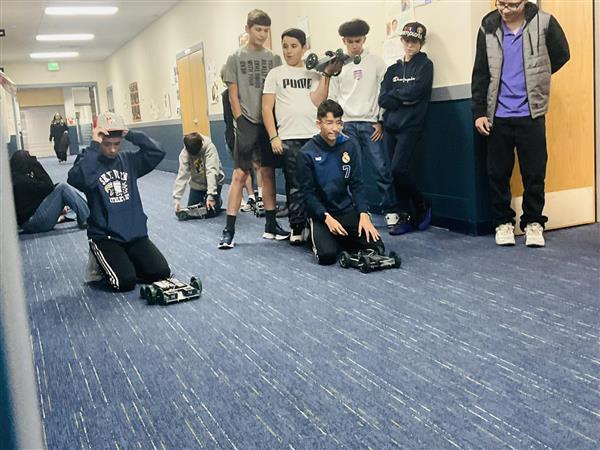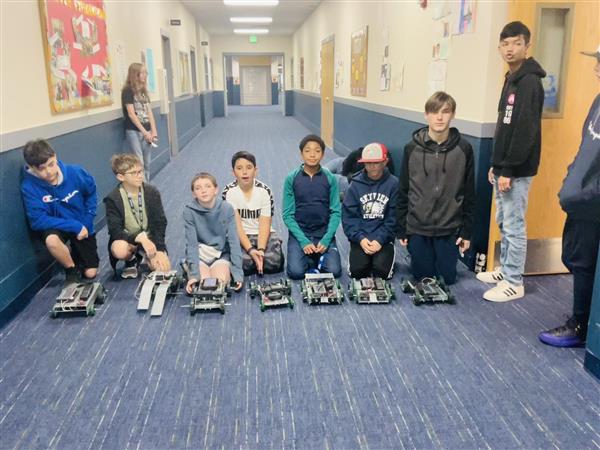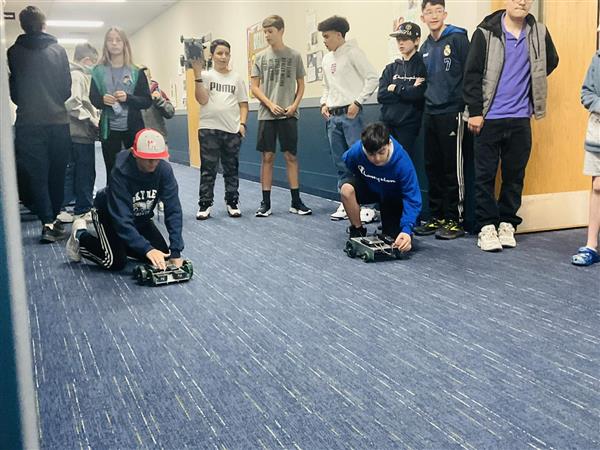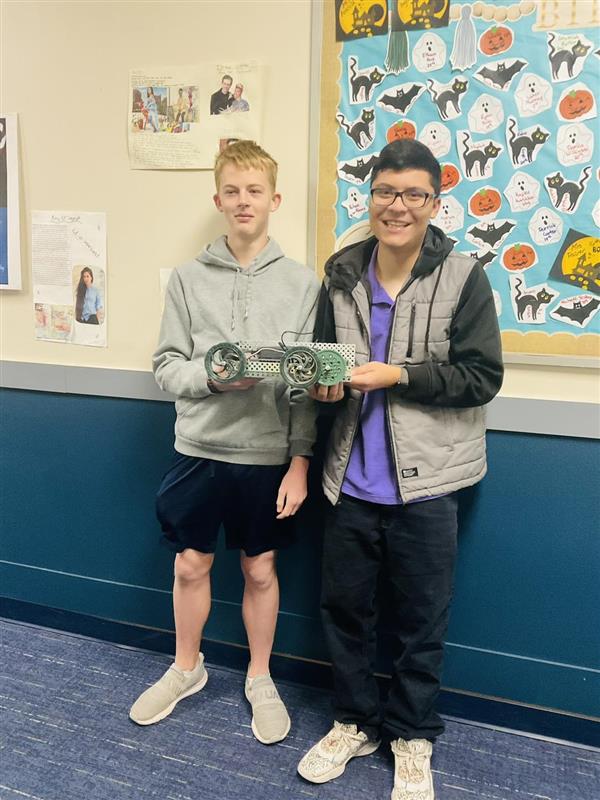- Skyview Middle School
- Educational Technology




-
EDUCATIONAL TECHNOLOGY OFFERINGS
Broadcasting
Broadcasting 6: This class will focus on writing, filming, and editing skills. Students in Broadcasting 6 will not create the weekly televised news broadcast, but segments created may end up on the broadcast. Topics include an introduction to the technology needed for video production, on-camera skills, composing camera shots, and basic video and music editing using iMovie.Broadcasting 7/8: This class will focus on the weekly production of a televised news broadcast. Students will be asked to create group projects that demonstrate the ability to tell a story or provide information using video. Topics include on-camera skills, composing advanced camera shots, and advanced video editing using iMovie.Advanced Broadcasting: This class will focus on the elements of journalism and advanced video production. Students will be asked to create group projects that demonstrate the ability to tell a story or provide factual information using written and video journalism. Topics include on-camera skills, strong interviewing concepts, in-depth local and world news writing, composing complex camera shots, and advanced video and music editing using Final Cut Pro.CODING
Intro to Coding in Python: This course provides an introduction to coding in Python. CS100 covers basic coding
concepts common to all programming languages such as statements, conditionals, and
loops. The course also focuses on developing coding-related skills such as
decomposition of large programs, debugging, and analyzing code written by others.
Students completing this course will be able to create text-based games and other
interactive programs in Python.Coding in Python 1 (CS 101): This course provides an introduction to coding in Python. Students master basic coding
concepts common to all programming languages, such as statements, conditionals, and
loops, and are additionally introduced to: libraries, procedural graphics, and complex
input. Students develop coding-related skills such as decomposition of large programs,
debugging, and analyzing code written by others. Students will be able to create games,
animations, and other interactive programs in Python upon completion of the course.Coding in Python 2 (CS 102): This course builds on basic knowledge of Python from CS101. Students learn to use
images from outside their program to create sprites and sprite-based animations for use
in graphical programs. Students explore more in-depth coding concepts such as the list
data structure and functions. Students completing this course will be able to create
graphical, sprite-based games using custom images, and can write dense, well-organized
code.Additional Technology Education Courses
Tech Ed/Design and Modeling
This unit uses solid modeling (a very sophisticated mathematical technique for representing solid objects) to introduce students to the design process. Utilizing this design approach, students understand how solid modeling has influenced their lives. Students also learn sketching techniques and use descriptive geometry as a component of design, measurement, and computer modeling. Using design briefs, students create models to solve problems.Computer Science Discoveries (Coding)
Computer Science Discoveries (CS Discoveries) is an introductory computer science course that empowers students to create authentic artifacts and engage with computer science as a medium for creativity, communication, problem solving, and fun.
Pre-Engineering/The Science of Technology
This unit traces how science has affected technology throughout history. Students learn about the mechanics of motion, the conversion of energy, and the use of science to improve their communication all through challenging Engineering Projects.GTT Magic of Electrons
Through hands-on projects, students explore electricity, the behavior and parts of atoms, and sensing devices in the Magic of Electrons (ME) unit. They learn knowledge and skills in basic circuitry design and examine the impact of electricity on the world around them.
GTT/Automation and Robotics
Students trace the history and development of automation and robotics. They learn about structures, energy transfer, machine automation, and computer control systems. Students acquire knowledge and skills in engineering problem solving and explore requirements for careers in engineering.GTT/Forensics (Medical Detectives)
Students play the role of real-life medical detectives as they analyze genetic testing results to diagnose disease and study DNA evidence found at a “crime scene.” They solve medical mysteries through hands-on projects and labs, investigate how to measure and interpret vital signs, and learn how the systems of the human body work together to maintain health.


